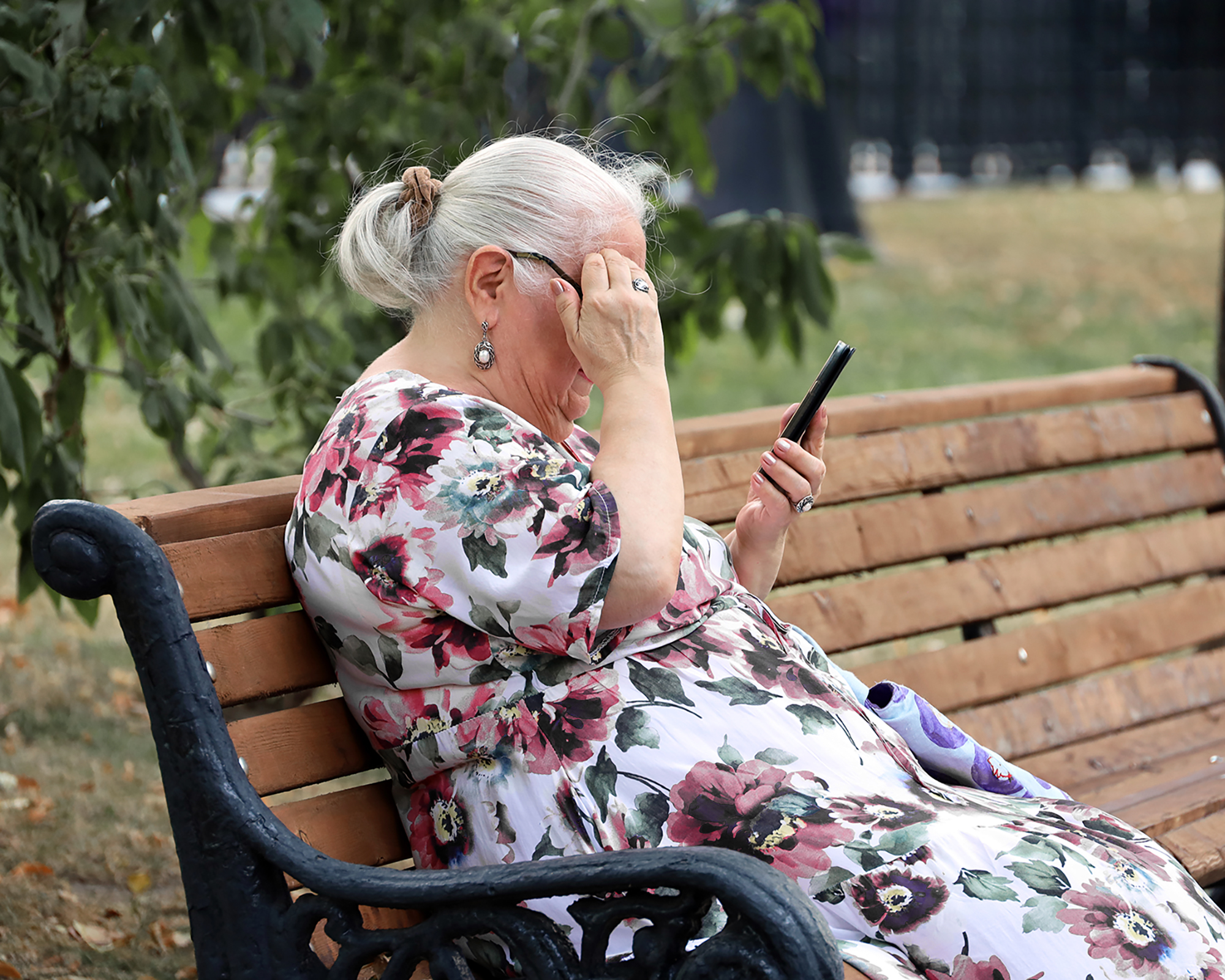Russian grandmothers are pushing pro-Putin views on their relatives who have left Russia

Grandmothers are exposed to propaganda narratives through Russian television and social media. PHOTO: ADOBE STOCK
Aleksandr Trifonov
Published 03.10.2024 at 10:43
Updated 03.10.2024 at 10:57
Pavel Faev calls his mother via WhatsApp a couple of times a week. Faev is a Russian immigrant living in Lahti, Finland. His mother Svetlana lives in a small town in the southwest of Russia, not far from Ukrainian border.
For several months now, Faev has made a made a conscious effort to avoid any political discussions with his mother. It is the only way they can maintain their relationship.
Faev is in his early forties. He and his wife left Russia in the fall of 2022 after the war had begun and mobilization was announced. He disagreed with the regime and didn’t want to fight in Putin’s army. In Finland, he has completed a college program and found a job at a company that installs cable systems.
Before the war, there were no serious political disagreements between Faev and his mother, though their values differed. But everything changed with the invasion. Svetlana now believes that the war against Ukraine must continue for the sake of higher state goals and has tried to assert her views on both Faev and his daughter.
In her mind, the greatness of Russia is being threatened by, among others, European gays who are supposedly trying to infiltrate the country and undermine the moral fabric of Russian society. She sees the war as a fight against these “gays.” If Russia loses, she claims, the country will be forced to “dance to the West’s tune”.
“She kept bringing up gays, constantly switching the conversation to that topic,” Faev tells.
“She even called Finland a fascist state because they fought against the USSR alongside Nazi Germany.”
These narratives come directly from the propaganda that Russian government has spread since the invasion of Ukraine. According to Faev, the information sources of her mother have been Russian state TV and aggressive pro-war ‘Z-channels’ on Telegram.
“My mom has a dual identity: she’s both a mother and a patriot – or at least what she thinks being a patriot is,” Faev says.
“On the one hand, she feels she should support me as a mother; on the other, she believes she can’t betray her country.”
Russian grandmothers are not what they used to be
Faev’s story is quite typical in today’s Russia. Satakieli is aware of several other similar cases among Russian immigrants in Finland. One can also find numerous videos on YouTube discussing the same issue among Russian expats in other countries. For all these men, this shift in their relationships with their mothers has been an unpleasant surprise and has taken a toll on their mental health.
Even though people in Russia are often not willing to share their honest opinion in surveys, the general trend is clearly visible: the older generation is far more likely to support Putin’s policies than younger people or those of middle age.
Due to declining birth rates since the 1990s, the elderly now make up a significant portion of the population. Among this older cohort, women dominate, as they tend to live longer than men. Ironically, not long ago, the same grandmothers were the most peace-loving part of Russian society. They still remembered the horrors of World War II and naturally did not want to see another war.
“In extraordinary circumstances, ordinary people can display their less favourable sides”
In times of great upheaval, like Russia’s war against Ukraine, societal polarization is inevitable, says Vladimir Gelman, Professor of Russian Politics at the Aleksanteri Institute, University of Helsinki.
“This happened during the Revolution and Civil War of 1917-1921. Sharp conflicts within families were common.”
However, in this eternal conflict between generations during turbulent times, there’s a modern twist – the role of gadgets.
“People may not meet in person, but they continue to communicate actively, which wasn’t the case in Soviet times. If someone emigrated from Russia fifty years ago, they might have written one letter a year. Now, conflicts between relatives are intensified because they continue to discuss political topics constantly.”
Face-to-face discussions tend to ease up polarization. But the fundamental problem is not the devices themselves, Gelman points out.
“It’s the upheaval in society. The issue isn’t that people are somehow unreasonable; in extraordinary circumstances, ordinary people can display their less favourable sides.”
When asked how this situation might resolve, professor Gelman suggests that if the war ends or at least pauses in the near future, the polarization will immediately lessen. But if it drags on for a long time – perhaps even decades – the divide between those who have left and those who remain in Russia could become irreversible.